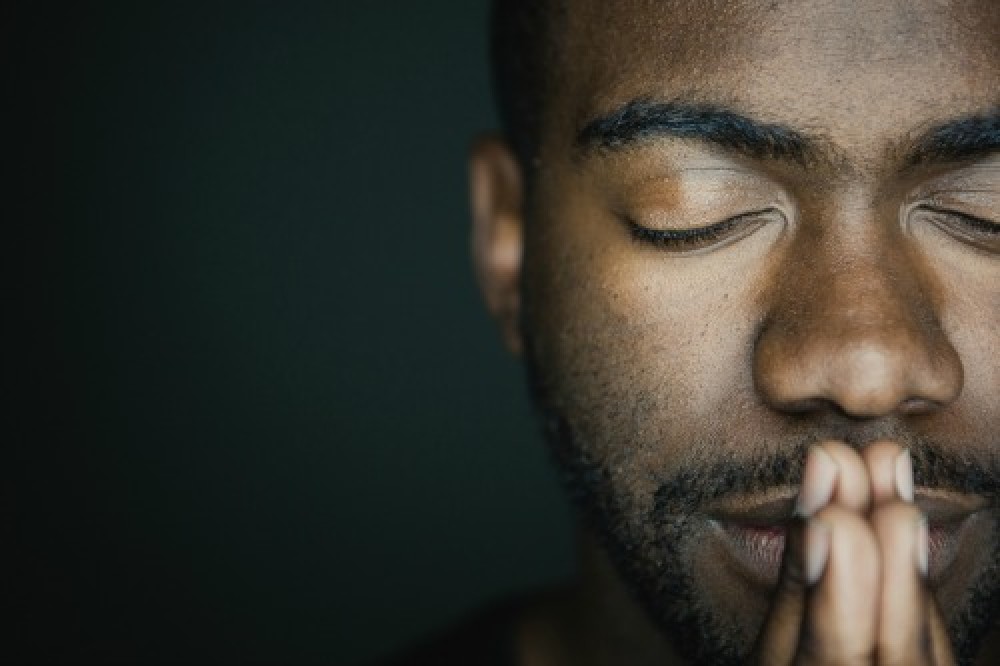Article written by Dr. Don Colbert. Dr Colbert graduated from Oral Roberts Medical School in 1984. Dr. Colbert has practiced medicine in Central Florida and has been board certified in Family Practice for over 25 years.
Even a mere 30 seconds of prayer, acknowledging God and giving thanks for all the blessings in your life, can have a powerful effect on your body, mind, and spirit. If you have a regular practice of prayer, then you are well aware that benefits are very real and wide-ranging. Many people who engage in these activities report psychological and spiritual benefits such as a sense of greater clarity, purpose, gratitude, presence, sense of connection, and overall well-being. However, these sorts of subjective benefits can be hard to measure scientifically. Interestingly, despite the difficulty in quantifying the spiritual effects of prayer, there have been many studies looking at the physical benefits of this ancient practice. A 2013 Pew Research Poll estimated that over half of Americans pray daily.
A University of Rochester study found that over 85% of people dealing with a major illness turn to prayer. Every religion or spiritual belief system has a form of prayer or meditation as a foundational principle. This shows that prayer is not merely a cultural phenomenon but a fundamental aspect of the human experience. Yet, many people still struggle to reconcile belief in the power of prayer with a scientific worldview. Duke University's Harold G. Koenig, M.D, author of several books on faith and healing, says "studies have shown prayer can prevent people from getting sick, and when they do get sick, prayer can help them get better faster. So how does that happen? Harvard Medical School cardiovascular specialist Dr. Herbert Benson discovered what is called the "relaxation response."
This is the physiological state that occurs during prayer. It involves the autonomic (automatic) nervous system shifting over to a parasympathetic (rest and digest) dominant state, as opposed to the sympathetic (fight, flight, freeze) state that most of us spend the majority of the day in. The act of prayer has shown to increase certain helpful neurotransmitters, such as dopamine, which help promote a state of relaxation, focus, motivation, and well-being. But the effects are not confined to momentary relaxation. Long-term prayer can actually rewire and rebuild the brain! With the ability to scan the brain using magnetic resonance imaging (MRI), researchers have been able to note the physiological changes that occur in the brains of those who pray regularly.
Lisa Miller, professor and director of Clinical Psychology and director of the Spirituality Mind Body Institute at Teachers College, Columbia University conducted a study on 103 people who were at a high risk of depression. Using MRI, she found that those who prayed regularly tended to have a thicker cerebral cortex which has been associated with less depression and anxiety. Another study has shown that urban children with asthma cope better when incorporating prayer into their lives. Prayer is also good for your heart. Christians have been shown to have lower average blood-pressure than non-believers. Prayer also is correlated to less heart attacks and quicker recovery from heart surgery. There is even evidence to suggest that regular prayer will help you live longer! So with all these benefits, you should consider incorporating prayer as part of your daily regimen.
According to a study published in the journal Sociology of Religion titled "Prayer, Attachment to God, and Symptoms of Anxiety-Related Disorders among U.S. Adults," looked at the data of 1,714 volunteers. What they found is that those who pray with a loving and protective conception of God experience a more dramatic reduction in anxiety related symptoms compared to those who pray without the expectation of comfort or protection. This shows us just how important faith actually is! The publishers believe that the emotional and spiritual comfort from prayer to a loving and compassionate God offers a sense of hope and security, while those who pray with a more judgmental conception of God breeds resentment, rejection, and detachment. So understanding the character of your God is important.
The most beautiful thing about all of this research is not only that it validates the ancient wisdom behind prayer, but it also shows us how incredibly easy it can be to implement powerful healing practices into our lives. With so many benefits on the physical, psychological, and spiritual levels, there is really no reason to not pray or meditate every single day! The best times of day are first thing in the morning and right before bed. However you can pray in the car on the way to work, in line at the grocery store, sitting in the waiting room at the doctor's office, or before you eat your meals. Even a mere 30 seconds of prayer, acknowledging God and giving thanks for all the blessings in your life, can have a powerful effect on your body, mind, and spirit. So what do you think? Have you been inspired to reinvigorate the prayer in your life?
Source: Breaking Christian News
